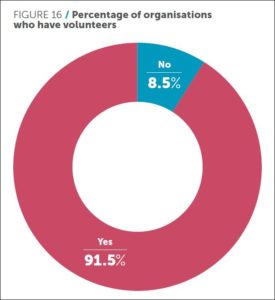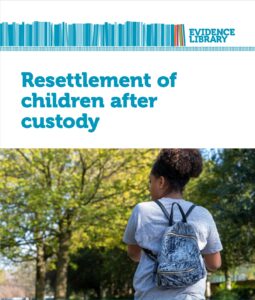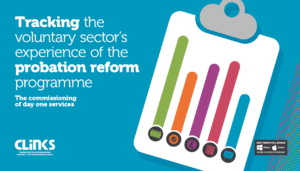State of the Sector
Last week (12 July 2017) Clinks published their fifth annual State of the Sector report which has proven to be the best litmus test of the health of the voluntary sector working with offenders.
Their overall conclusion is:
During a year of political instability, voluntary organisations continued to support the most vulnerable people despite a shifting funding landscape and increasing and changing service user needs. Organisations saw an increase in the number of people they are supporting, with more complex and immediate needs, resulting in organisations developing more flexible and creative working and recruiting more volunteers. Organisations also had to deal with large reductions in funds, and have struggled to get full cost recovery on services, with some services closing.
The report is based on survey responses from 224 organisations plus a series of in-depth interviews.
Findings
The key findings are set out below.
- Organisations are supporting more people, with 57% saying that the number of service users had risen in the financial year 2015/16.
- Service user need continues to change with needs becoming more complex and immediate. 80% of organisations agreed or strongly agreed that needs had become more complex, and 79% said they had become more immediate.
- Organisations told us that a range of factors are impacting on service user need including changes to the welfare system, a general lack of funding and resources resulting in a reduction of other services and prisons that are in serious need of reform.
- Rather than turn people away, organisations are responding creatively to changing service user need with 65% of organisations working more flexibly with their clients, 55% working to improve the skill set of their staff and volunteers and 51% increasing their volunteer numbers to enable them to meet service user need.

- Service user involvement is common. 80% of organisations have consulted service users about the design and delivery of their services, 58% recruited service users as staff and/or volunteers and 41% have a service user forum or council. 20% recruited service users as a member of their board, with some in the process of doing so.
- Organisations are expanding and maintaining their services. Almost half of the organisations we heard from were expanding their services and another 40% were maintaining them. Only 8% said they were reducing their services. Organisations that deliver specialist services to specific client groups were less likely to be expanding their services and more likely to be maintaining or reducing their services. 30% of organisations delivering a specialist service said they were at risk of closure in the financial year 2015/16.
- Specialist criminal justice organisations have experienced a reduction in income from local government but a rise in income from national government. Organisations experienced a 40% decrease in funding from local government over seven years, but a 68% increase in real term funding from national government.

- Organisations struggle to achieve full cost recovery on the contracts they are delivering.
- All voluntary organisations working in criminal justice have fewer reserves than the wider UK voluntary sector. Voluntary organisations as a whole in the UK had on average around 6 months of reserves in 2013/14.3 For the same year, organisations working specifically in criminal justice had an average of 1.9 months of reserves, which fell to an average of 1.7 months of reserves in 2014/15.
Analysis
Like last year’s report, Clinks State of the Sector reveals a resilient group of voluntary organisations under increasing financial pressure. It remains to be seen whether prison reform (and the probation review, if and when that is published) generate more funding opportunities which might make next year’s report more enjoyable reading.








